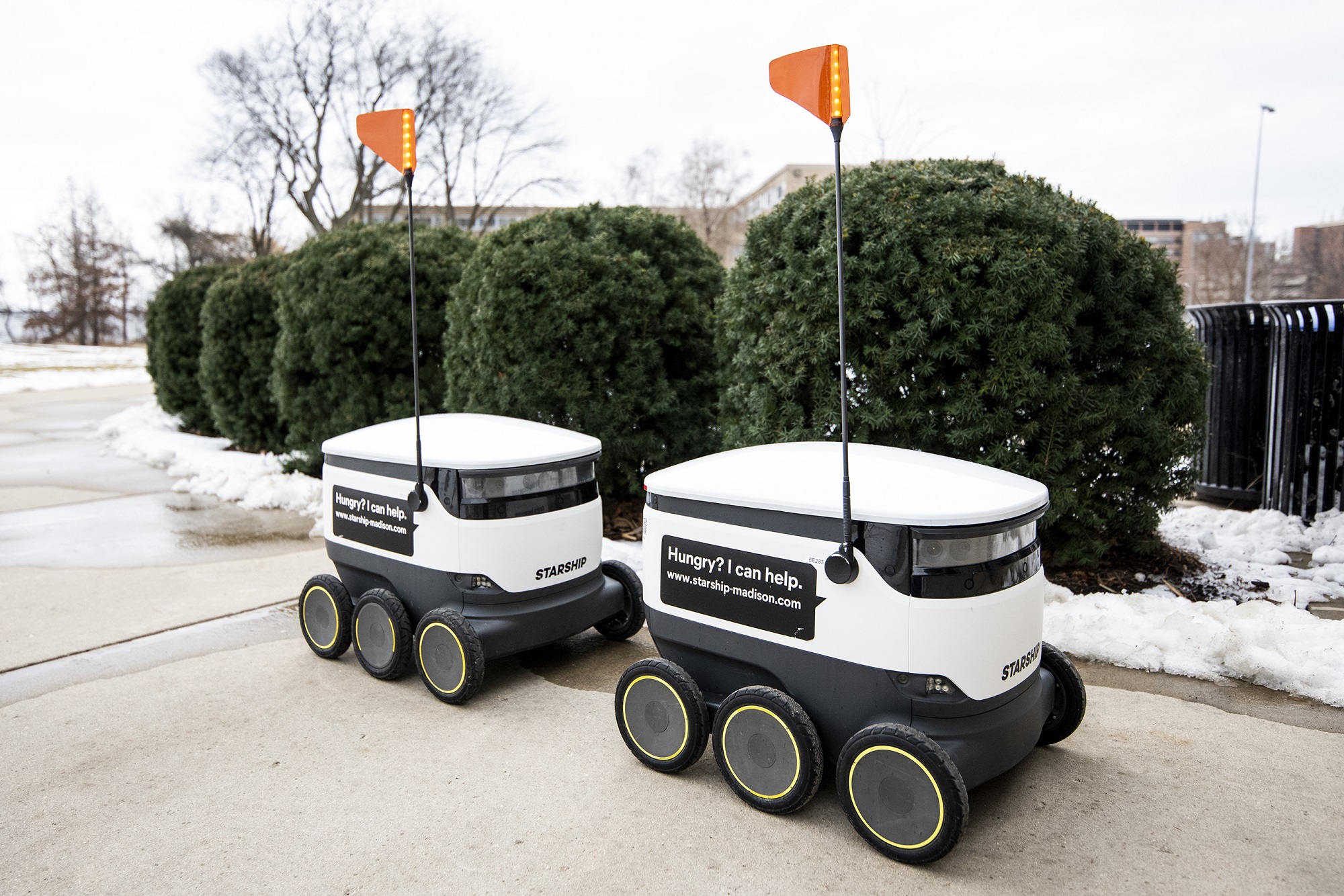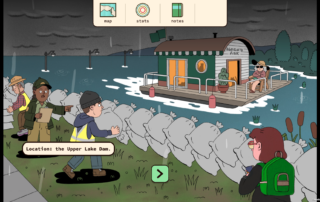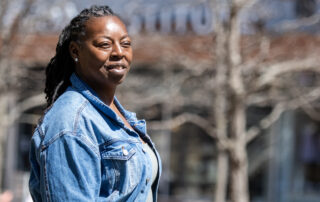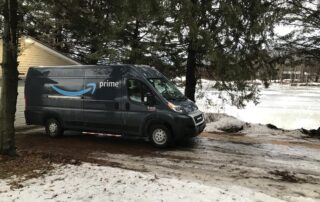If you’ve been to Madison sometime in the past year, chances are you’ve seen them — stout strangers from a strange land about the size of a cooler. They scuttle down the sidewalk on six wheels, flag raised, dodging obstacles as they go about their business. They’re called Starships, and they come from Estonia by way of a San Francisco-based company called, Starship. About 35 of them in Madison work for the University of Wisconsin’s food service, delivering food to students mostly.
“Our students are coming to us, and you know, they’ve grown up with Uber Eat and Eat Street and Doordash, GrubHub. So when they come to us, they’re already expecting that,” said Peter Testory, director of UW’s Dining and Culinary Services, probably knows more about them than anyone else in town, but even he maintains a professional distance.
Testory recently spoke with WPR’s Norman Gilliland about the food-delivering robots.
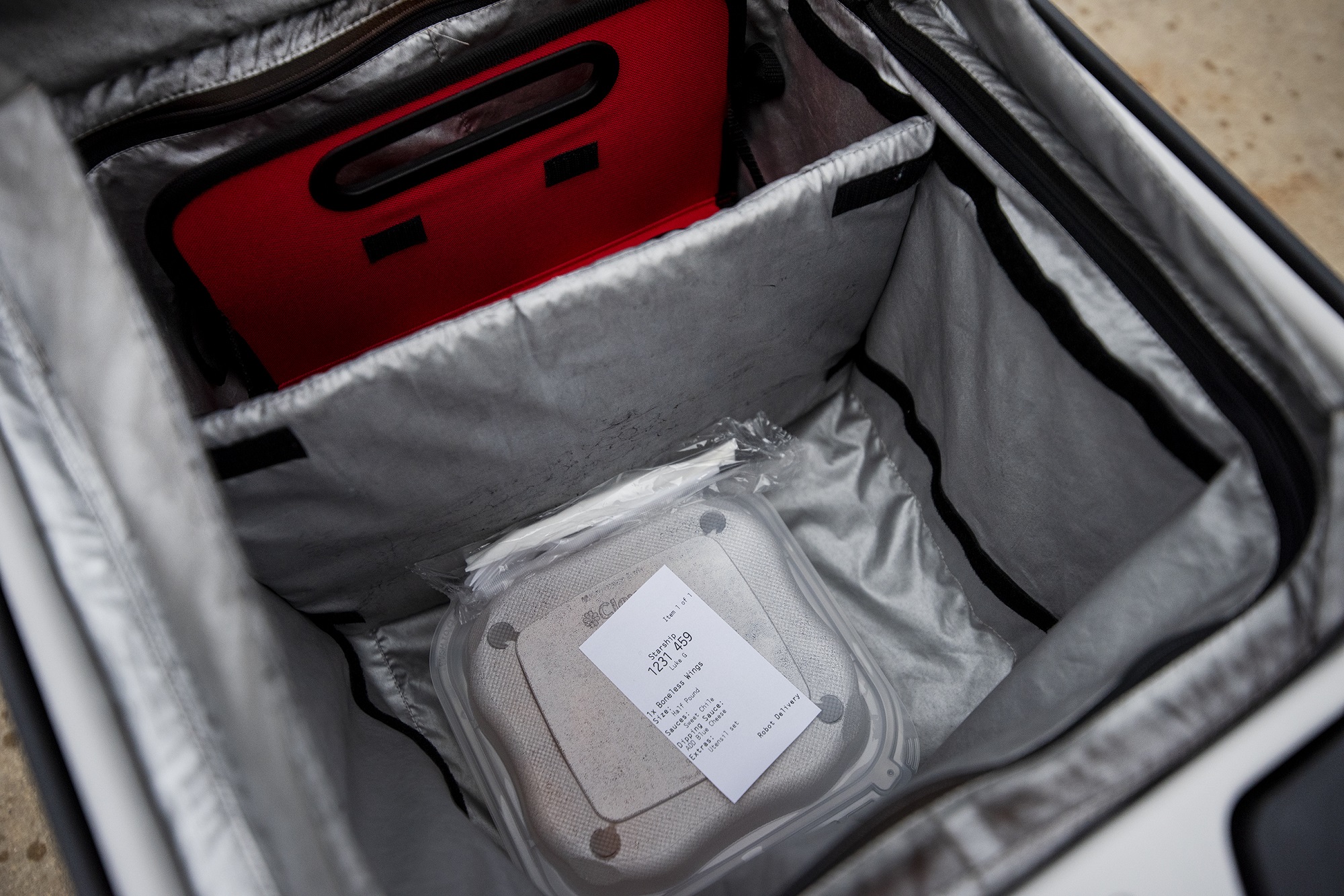
The interior of a Starship Technologies delivery robot has a to-go box inside to demonstrate what the food looks like upon arrival Dec. 21, 2020, at UW-Madison. (Angela Major/WPR)
(The following interview has been edited for brevity and clarity.)
Norman Gilliland: Do they have names?
Peter Testory: When they first came to campus, I had dreams of flame stickers and R2-D2 stickers and naming them. Unfortunately, Starship is very strict on its branding protocols, and we’re not allowed to name them or brand them in any way.
You might call them URO’s, unidentified rolling objects. But you know, any food-bearing entity mingling with students is bound to get drawn into a relationship.
What we’ve seen is that students adopt them as part of the campus community, almost kind of like a campus pet. Students petting them as they drove by, putting hats and scarves on them when it was cold outside, taking selfies with them. So the one downside of that is that delivery and delivery time can be a little longer because the robots are being stopped to take a selfie with it.
And sooner or later, a relationship leads to extra favors.
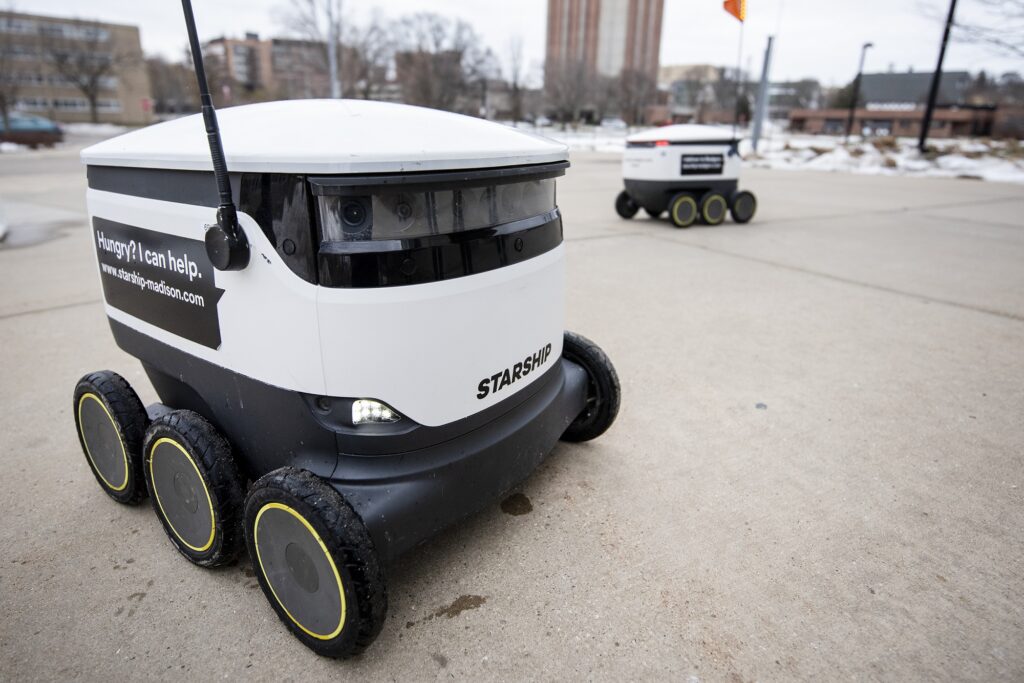
A Starship Technologies delivery robot returns after delivering food to customers Dec. 21, 2020, at UW-Madison. (Angela Major/WPR)
PT: Starship can program particular messages into their robot during certain holidays or other times of the year. For example, they’ll wish someone a happy Valentine’s Day when they drop their order off. We did a promo toward the end of last year where the robot delivered students their cap and gown and wish them congratulations. So Starship can put some messages in there and not only in English, but in multiple different languages.
NG: Can they communicate verbally at all?
PT: If someone is in their way, they can ask them to please move, but they can’t have a verbal exchange back and forth.
NG: How do they read the traffic lights?
PT: They use a GPS signal of sorts with sonar and radar on the robot, which is a technical part of the operation that I don’t understand. But they can detect things within six feet around them, able to see when a light turns green, able to detect when a car is coming when a vehicle is not coming. So they’re 95 percent autonomous and five percent human-driven. Generally, some of the five percent that they’re human-driven is when they’re at a busy intersection specifically.
NG: With so much charm going for them, it seems likely that these visitors are here to stay.
